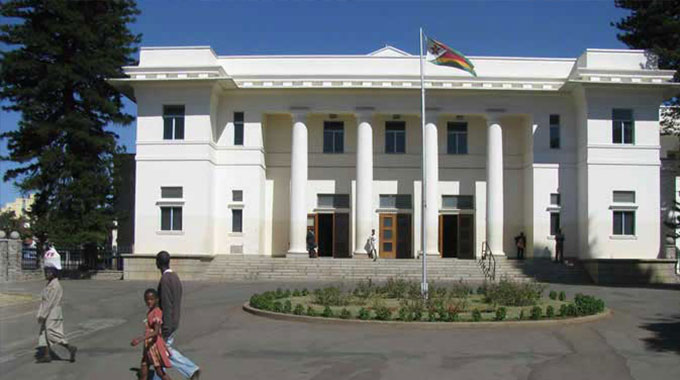
The Sunday News

Vusumuzi Dube, Online News Editor
THE Bulawayo City Council (BCC) is working on ensuring the increased use of solar power in the city, which will see the construction of solar power stations, solar farms and the installation of solar panels in the city’s prominent buildings and industries.
This comes as the city works towards becoming a leading smart transformative city by year 2024. Cabinet recently approved the implementation of a proposed 50 megawatt solar farm joint venture between the local authority and Williams Engineering at Ncema Dam in Esigodini.

Lower Ncema Dam
The power plant will create 200 jobs during construction and 40 jobs during its operation and also provide dedicated power to Bulawayo industries in the designated Special Economic Zones. The plant will also provide an alternative revenue stream for the local authority.
The local authority has since revealed that they are now taking a deliberate call for more investment in the city towards alternative energy. According to the local authority’s investment prospectus, the city is targeting a number of major solar projects that will help address the power challenges currently being faced in the country.
Responding to questions from Sunday News, BCC corporate communications manager, Mrs Nesisa Mpofu revealed that the local authority has already completed a marketing framework to the Corporate Strategy (Baseline Research) that is expected to inform the investment strategy as part of the activities towards attracting more investment that will ensure that these projects are duly implemented.

Bulawayo City Council
“The City of Bulawayo is an industrial city and is largely dependent on a constant electricity supply and this is what led to the city commissioning a power plant around 1947, at its peak the power station produced 120 megawatts for the Bulawayo economy. Now the station generates less than 20 megawatts, when its operating.
“Due to the problems faced by the city’s power sector, Bulawayo has identified solar power as a sustainable and much cheaper source of power in the long run. Pursuant to the City’s vision of attaining Smart City Status by 2024 solar power is the future of power generation, residential, commercial and industrial rooftops are earmarked for solar energy investment,” said Mrs Mpofu.
The council spokesperson further revealed that the local authority was encouraging a diverse portfolio of investment in the sector which includes the construction of solar power stations, solar farms and the installation of solar panels in the city’s prominent buildings and industries.
Already the local authority’s main revenue hall in the Central Business District is operating on 100 percent solar power.
“The city is encouraging a diverse portfolio of investment in the sector which includes the construction of solar power stations, solar farms, installation of solar panels in the city’s prominent buildings and industries, installation of solar panels at the city’s dams and waste-water and sewer treatment plants and floating solar farms in council dams whereby solar farms are erected in all BCC water bodies such as at the Lower Ncema dam.
“Other opportunities that have been identified include, solar-powered streetlights, solar-powered robots, solar rooftops technology, solar-powered digital bus stops, solar charging stations, solar geysers and solar powered service stations,” said the council spokesperson.
Meanwhile, the local authority has upped its efforts towards the reintroduction of a cycling culture in the city with regulatory authorities already working on cycling tracks, signage, cycling parking bays, development of cycling material and identification of existing cycling infrastructure such as training depots.
“The benefits of reintroducing cycling culture or reviving cycling industry include low cost of transport for citizens, development of cycling industry, health benefit as cycling is also an exercise, access to education for school children and university, reduced congestion in the city, reduced carbon emission, developing cycling sport activities and increase of disposable income for workers.
“The cycling culture will also have benefits to the tourism and hospitality sector which include marketing and branding for the city, additional revenue stream, increases stay of tourists, cycling also gives guests the freedom to explore the locale and curate their own experiences with the help of Google maps, Geographical Information Systems (GIS), and maps making their stay more meaningful to spend more money in the tourism and hospitality sector,” said the City Economic Development Officer, Mr Khulisani Moyo.



